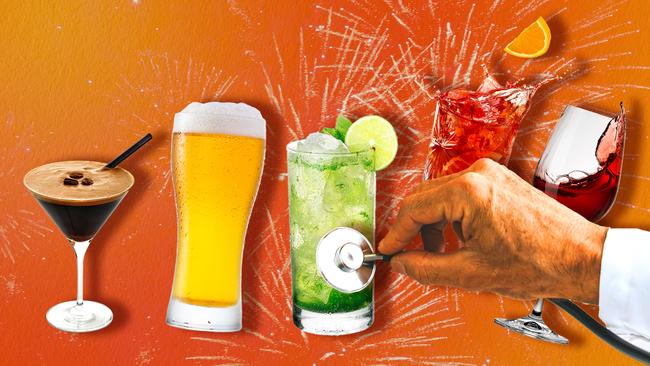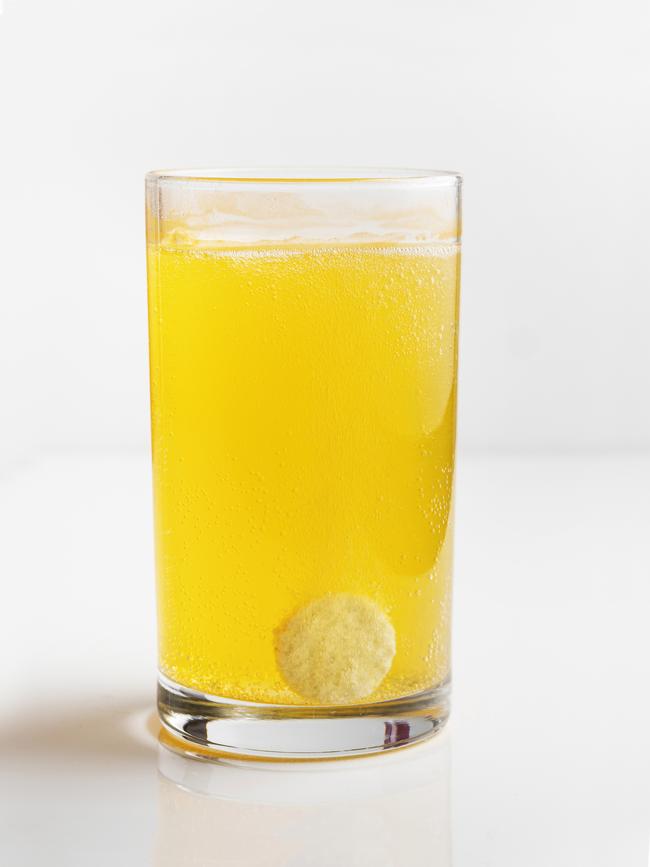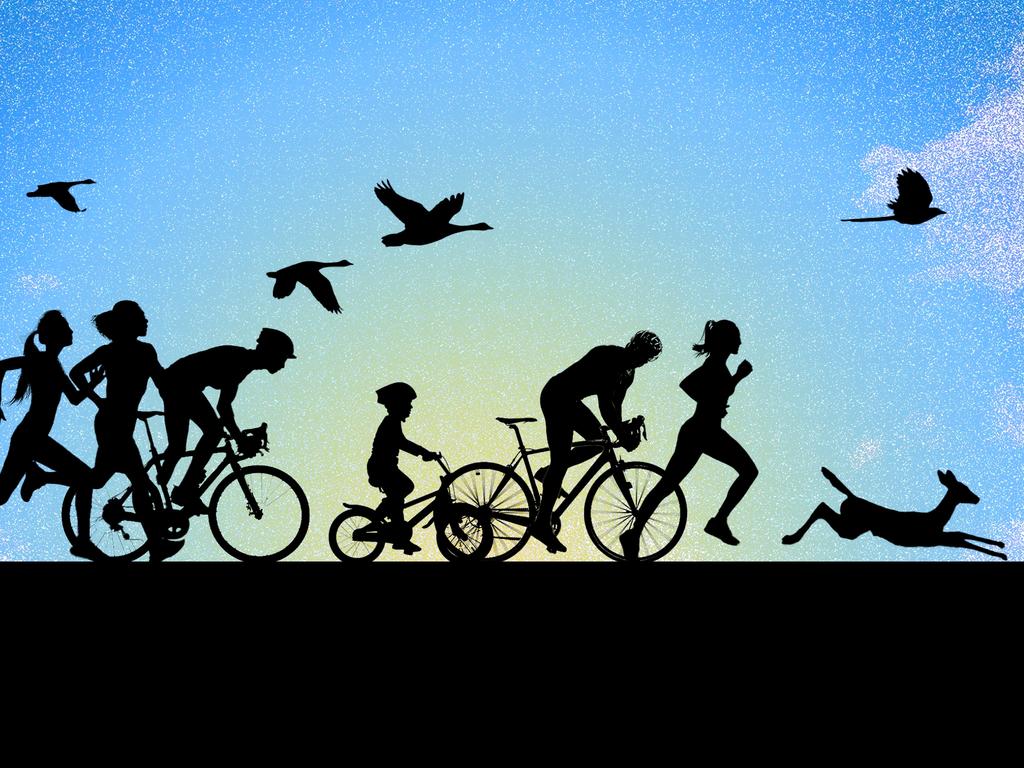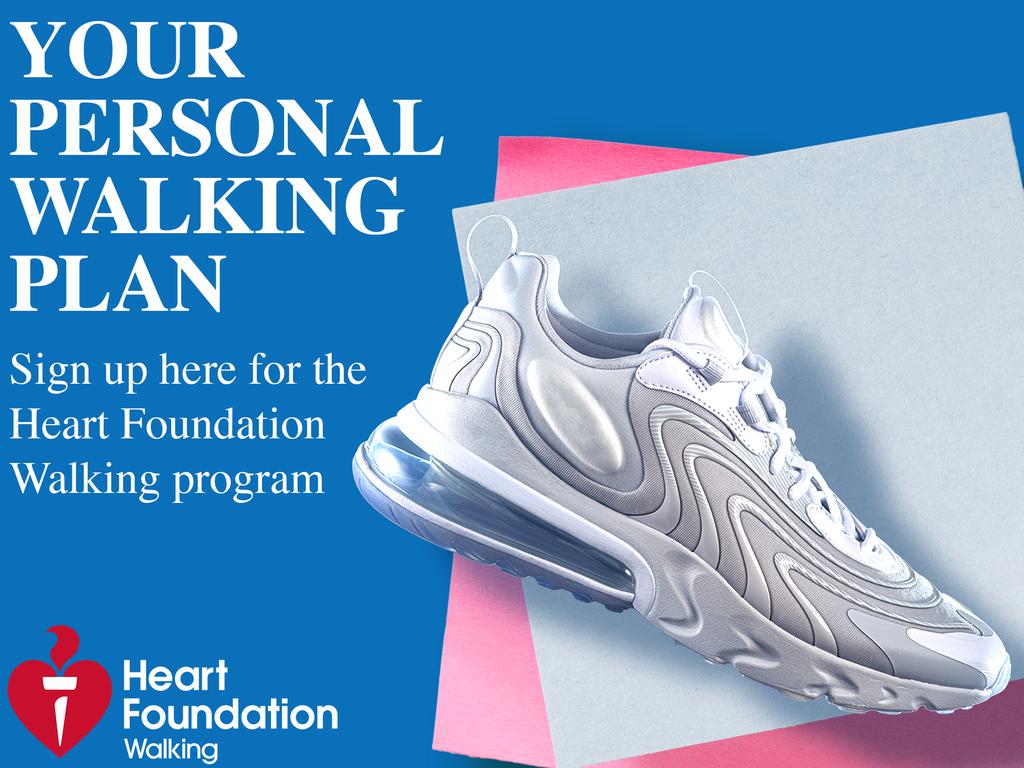Holiday hangover? Treat it like a doctor would
Korean pear juice may be hard to find but there are some other ‘cures’ doctors recommend for your aching head after alcohol. The ‘hair of the dog’ is not one of them.

Before I go any further, my clear advice is to drink alcohol sparingly. Excessive alcohol consumption can be the cause of terrible harms. It has a $4bn effect on our national productivity – 90 per cent of that due to absenteeism – for which hangovers are a major component. Australia’s National Health and Medical Research Council evidence-based guidance is not to have more than four standard drinks in a day.
So here’s some simple evidence-based advice for you: if you don’t overdo it, you won’t end up with a hangover. However, just as even the most cautious driver can still be injured running into an unexpected kangaroo, the most prudent and health-conscious person can occasionally have a few drinks too many. It is for that poor unfortunate that I am sharing advice on how doctors deal with hangovers.

Science tells us that hangover is inevitable once you consume five drinks, and that the severity of your hangover worsens with every drink after that. Know someone who seems to polish off a lot of drinks and not suffer the aftermath? There is definitely a genetic link with between 5 per cent and 20 per cent of people being somewhat hangover-resistant.
The opposite also is true. Some people have a metabolism that makes them very sensitive to the effects of alcohol. Alcohol intolerance is quite common in people with an east Asian family background. I am one of them thanks to my Hong Kong-born grandmother – one drink and I’m a mess.
Hangovers have been the subject of extensive scientific scrutiny, and I’m sure that many of these studies were initiated the morning after scientific conference cocktail parties. We know, for example, that 47 individual symptoms have been described as part of hangovers. Many readers will feel that they have experienced all 47 at times. The commonest are nausea, difficulty concentrating, sleepiness, weakness, sweating, stomach pain, thirst, and anxiety.
Unfortunately, and despite intense scientific curiosity, hangovers have proven difficult to study in the laboratory. The reasons for this are that hangover victims commonly have memory problems and forget what they consumed the night before the morning after. Many are just too ill to turn up at the lab for the research.
The primary process that drives hangovers is inflammation. Both the alcohol consumed and the by-products of its breakdown affect the body’s biochemistry and the way our nerves function. The urine and saliva of people with hangovers are overflowing with inflammatory chemicals.
To make things worse, certain tipples such as red wine and distilled spirits contain substances known as “congeners”. These are potent provokers of post-alcohol pain and include chemicals such as acetone (nail polish remover) and acetaldehyde – a toxic industrial chemical. If you spend a night drinking red wine or distilled spirits like this then expect a worse hangover.
When alcohol is broken down in our bodies one of the resulting chemicals is methanol. The amount of methanol in your bloodstream correlates closely with hangover symptoms. In high doses methanol is deadly.
The typical hangover starts several hours after the last drink, usually as the blood alcohol level approaches zero. In fact the severity of a hangover tends to reach its peak when the blood alcohol level is zero. The worst possible thing you can do, though, is try the “hair of the dog” and have another drink. You have been warned.
So what does the science tell us about helping with hangovers? What do doctors do?
Australian researchers were among a group who published a review on hangover treatment in 2017. While they found 584 research papers with hangover “cure” suggestions in the scientific literature, only a handful had useful information. No single remedy was able to “relieve all of the symptoms of hangover”. The most helpful “cures” included Korean pear juice and dandelion juice, neither of which is easy to pick up from a local late-night shop.
Hangovers tend to be more severe with lack of food consumption, decreased quality and quantity of sleep, increased physical activity while intoxicated, and dehydration. So start the night on a good footing: don’t drink on an empty stomach, catch up on sleep beforehand, and don’t dance until the early hours.

Hydration is especially important. Alternate alcohol-containing drinks with non-alcoholic drinks and plenty of water. Vitamin B6 can help – the dose is 200mg. Take a dose before you start the night, after three drinks, and with your last drink. Swallow two anti-inflammatory tablets, such as Nurofen, before bed with some sweet food. Drink as much water as you can manage before going to sleep.
After centuries of study medical science has shown us that hangovers are among the most difficult things to cure: prevention is much better. Have a happy and healthy new year.
Professor Steve Robson is one of Australia’s most highly qualified surgical specialists, researchers and teachers. He works at the Australian National University Medical School.
This column is published for information purposes only. It is not intended to be used as medical advice and should not be relied on as a substitute for independent professional advice about your personal health or a medical condition from your doctor or other qualified health professional.





On New Year’s Day, tens of thousands of Australians will wake up with a hangover. This misery-inducing malady has been known to medicine since ancient times. Indeed, hangovers were written about in the earliest medical manuscripts from thousands of years ago. Surely modern medicine has remedies to ease the pain of hangovers you ask?